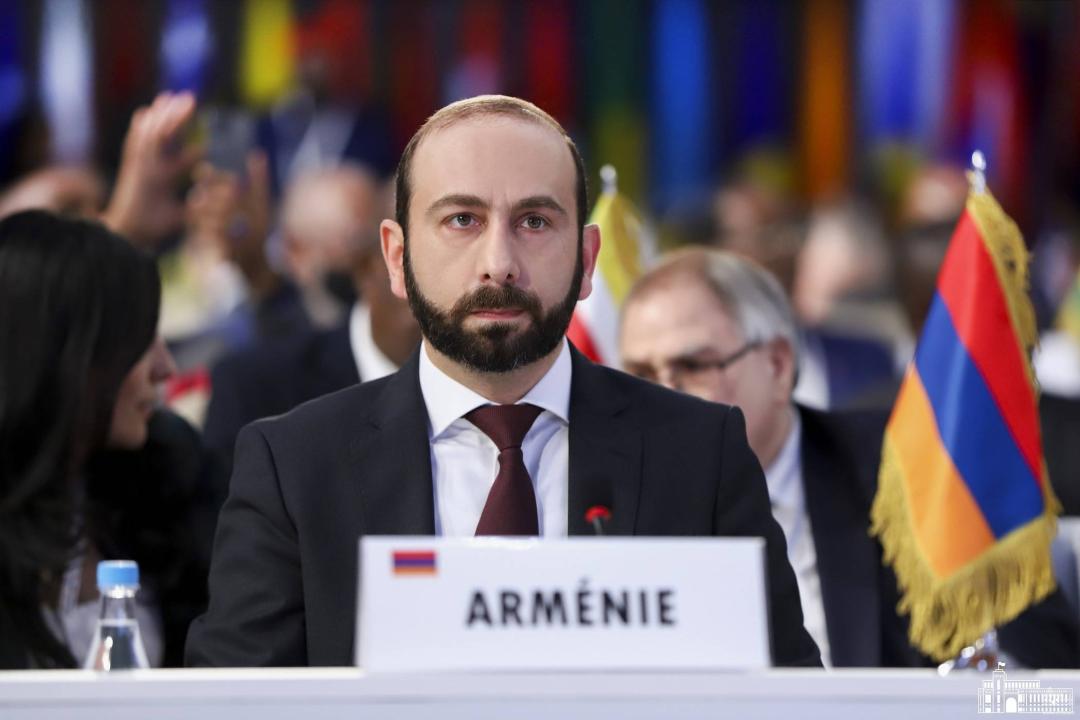
Armenian FM Clarifies Status of Armenia-Azerbaijan Peace Treaty Amid New Developments

On September 9, during a joint press conference with his Luxembourgian counterpart, Ararat Mirzoyan, the Armenian Foreign Minister addressed Prime Minister Pashinyan's recent comments regarding private security measures related to unblocking communications between Armenia and Azerbaijan.
Mirzoyan expressed his surprise at how his statements had been misrepresented, with "independent" experts presenting misinformation as fact. He clarified that discussions about “creating a corridor” or transferring control to any party were not on the table. He reaffirmed that the presence of third parties was unacceptable and that the stance on this matter remained unchanged.
Mirzoyan elaborated that the actual proposal involves enhancing people's sense of security. One option discussed was the involvement of a licensed company from two countries (presumably Armenia and Azerbaijan) to accompany cargo or passengers while unblocking railway communications.
At the same press conference, Mirzoyan also mentioned that the draft peace treaty submitted to Azerbaijan contained a fully agreed text. He stated that the 10th revision consisted entirely of previously agreed articles or sections. "We are waiting for Azerbaijan's reaction," Mirzoyan emphasized. He noted the opportunity to sign the peace treaty soon and expressed a desire to turn a new page for peace in the South Caucasus. He reaffirmed that Armenia's approach to communications remained unchanged, with Yerevan ready to unblock communications promptly under the "crossroads of peace" initiative.
Mirzoyan further revealed that the draft included 16 articles, of which 13 were fully agreed upon and three were partially agreed upon. Regarding the Prime Minister's mention of 17 articles, Mirzoyan suggested that the Prime Minister might have included the introductory part in his count. He confirmed that the presented text consisted of fully agreed articles or previously agreed parts. "There are no contradictions around the text. Azerbaijan is attempting to introduce additional topics, but our position is to sign what has already been agreed upon as soon as possible," Mirzoyan stated. He acknowledged that while one agreement might not resolve all issues, remaining topics could be discussed in future negotiations if both parties are interested.
On the same day, Mirzoyan also addressed the issue of border delimitation with Azerbaijan. He denied the existence of any principles beyond the Almaty Declaration. In response to a question about other potential principles, Mirzoyan assured that no other principles were under discussion. "I don’t want to get ahead of myself and reveal details to avoid violating negotiation etiquette, but other principles are not being discussed," he stated.
Azerbaijan Responds
On September 9, the Azerbaijani Foreign Ministry responded to statements made by Ararat Mirzoyan, the Minister of Foreign Affairs of the Republic of Armenia, at a joint press conference with the Luxembourgian Minister of Foreign Affairs and Trade. Mirzoyan had indicated that the draft "peace agreement" submitted by Armenia to Azerbaijan was fully agreed upon and that Armenia had no intention of handing over control of any road passing through its territory to a third party. He also mentioned discussions about involving a foreign private company to ensure the safe movement of cargo and passengers.
The Azerbaijani Foreign Ministry criticized Armenia's approach, accusing it of attempting to distract from the actual issues. They pointed out that Armenia had only recently responded to the draft agreement on peace and interstate relations submitted by Azerbaijan in June, about 70 days later. The ministry noted that while approximately 80% of the draft had been agreed upon, some provisions remained unresolved. They rejected the Armenian proposal to sign the agreement by removing non-agreed provisions, arguing that all problematic issues should be addressed for the peace agreement to be durable and effective.
The statement also accused Armenia of maintaining territorial claims against Azerbaijan and attempting to revive the Minsk Group, which Azerbaijan considers outdated. Given its insistence on signing the agreement without resolving key issues, the ministry questioned Armenia's true intentions.
Furthermore, the Azerbaijani Foreign Ministry highlighted that Armenia should amend its Constitution, which currently includes territorial claims against Azerbaijan, before signing the draft agreement. They also criticized Armenia for not fulfilling its obligations related to opening communications between Azerbaijan’s western regions and the Nakhchivan Autonomous Republic over the past four years. Regarding the involvement of a foreign private company, the ministry clarified that Azerbaijan had never considered a third party for its territory and urged Armenia to fulfill its commitments if it is genuinely interested in regional communication openings.
See Also


Armenia Records 5.9% GDP Growth in 2024, Missing 7% Goal

Yerevan Balances Strategic Ties with Both US and Russia, Says Foreign Minister

FM Mirzoyan: Peace Deal with Azerbaijan Is Within Reach

Pashinyan and Erdogan Hold Call, Reaffirm Commitment to Ongoing Dialogue

